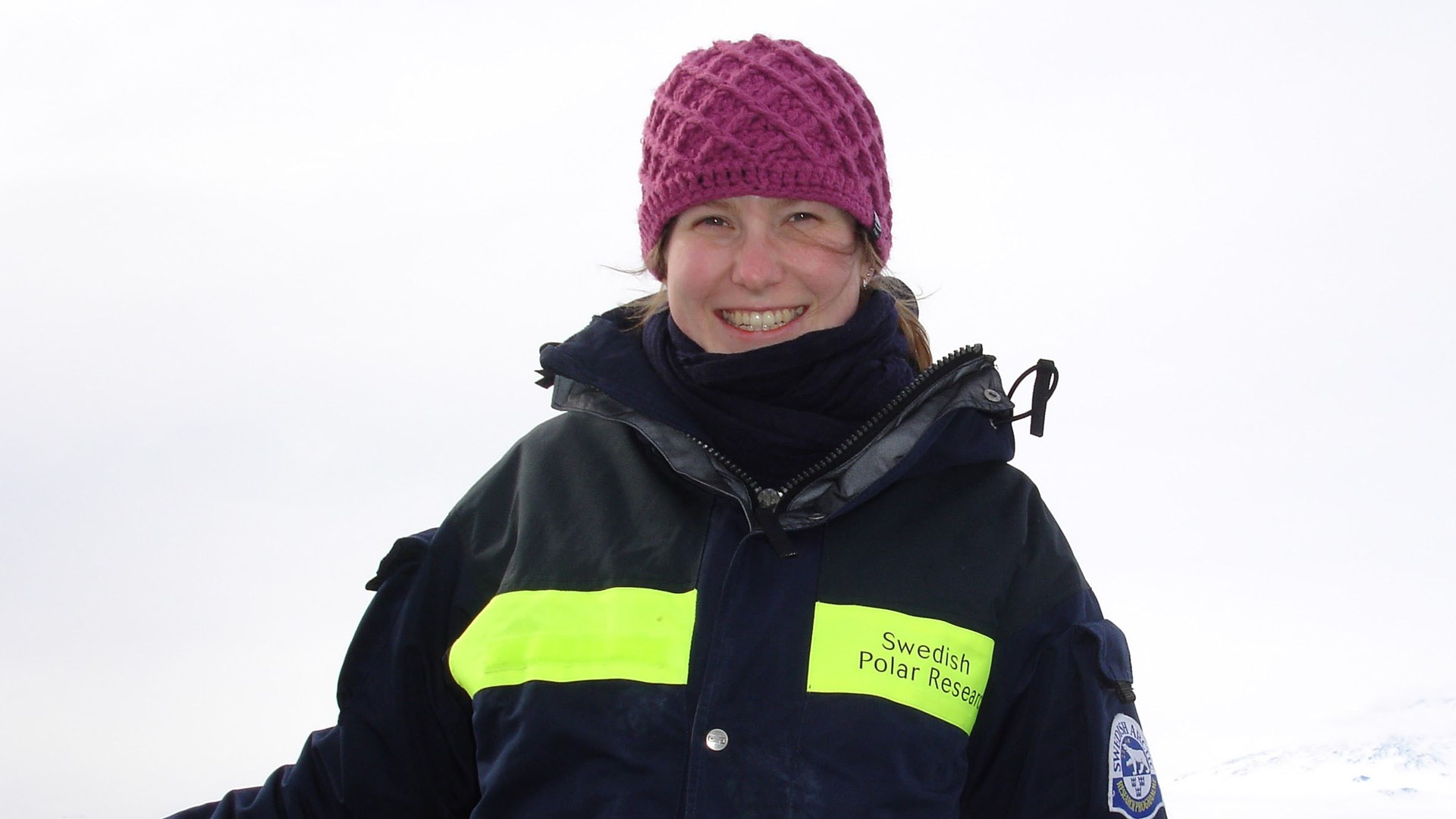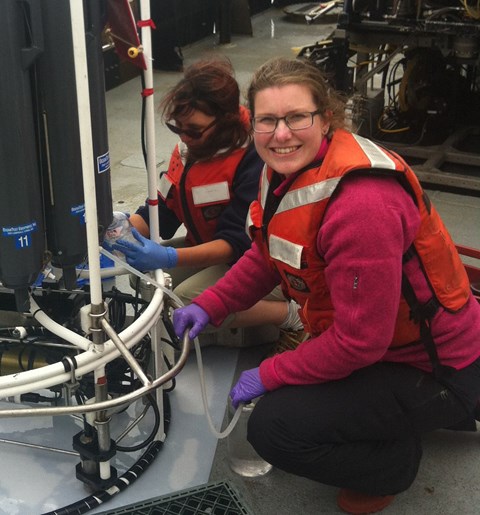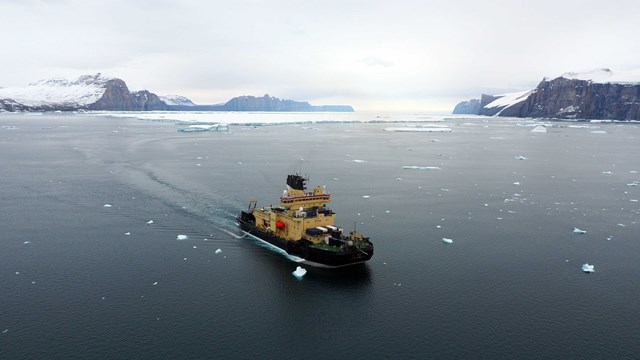Plankton reveal how global warming is affecting the Arctic ecosystem
 Hanna Farnelid, associate professor in marine ecology at Linnaeus University in Kalmar
Hanna Farnelid, associate professor in marine ecology at Linnaeus University in Kalmar
Hanna Farnelid, associate professor in marine ecology at Linnaeus University in Kalmar, is one of the researchers participating in this summer's Arctic expedition with the icebreaker Oden. This is her second expedition with Oden, the last time it happened was in 2007 when she participated in the expedition Oden Southern Ocean to Antarctica.
– The expedition 2007/2008 was an exciting experience that we did together with American researchers. Since then, I have participated in several longer expeditions in subtropical seas aboard other research vessels. Now I am very much looking forward to experiencing polar regions again, but this time on the other side of the Earth, says Hanna Farnelid.
What are you most looking forward to with the Synoptic Arctic Survey 2021 expedition?
– After working from home for more than a year, I look most forward to meeting all the people on board and working together in a team for real. I also look forward to the magical feeling of being on a ship far out in the world's oceans and realizing that we are just a small dot on our fantastic planet. Bouncing in the bunk in the middle of the night when we break through thick sea ice will also be fun!
You are the research leader for two work packages on board and conduct research on plankton. Why are plankton interesting to investigate?
– Phytoplankton in the oceans produce more than half of the oxygen we breathe. You can therefore think of them as our "second lung" and then you understand that they are incredibly important and a prerequisite for life on our planet. They also form the basis of the marine food web and are crucial for life in our seas. Even though they are so important, much is still unknown about them and it is therefore very exciting to study plankton.
What significance do they have for the Arctic ecosystem?
– Plankton are very important for the Arctic ecosystem. The species that are there and how much carbon they absorb have major consequences for productivity in the sea.
Can you tell us more about what you will investigate during the expedition?
– I will investigate the distribution, growth and death of the smallest primary producers, so-called picophytoplankton. As the Arctic becomes increasingly warmer, the proportion of picophytoplankton is expected to increase further and small cyanobacteria can expand into the Arctic. They could compete with existing species and lead to a shift in plankton composition. Such a shift can have major consequences for the carbon cycle and the food web. Studying picophytoplankton is therefore very important to understand how global warming will affect the Arctic ecosystem.
Before the expedition, you will be in individual quarantine in a hotel room in Malmö. What are you going to do in the meantime?
– I have many interesting research results from my research on picophytoplankton in the Baltic Sea that I want to analyse. I also plan to knit a sweater, read a book, and learn something new. It is rare that you get the opportunity to spend so much time by yourself so it should be an interesting experience, says Hanna Farnelid.
Hanna Farnelid
Title: associate professor in marine ecology at Linnaeus University in Kalmar
University: Linnaeus University in Kalmar
Role in Synoptic Arctic Survey 2021: PI for the work packages Picophytoplankton och Phytoplankton
Most important equipment: "A peristaltic pump with four pump heads and dual channels that allows me to take samples from eight depths simultaneously."


